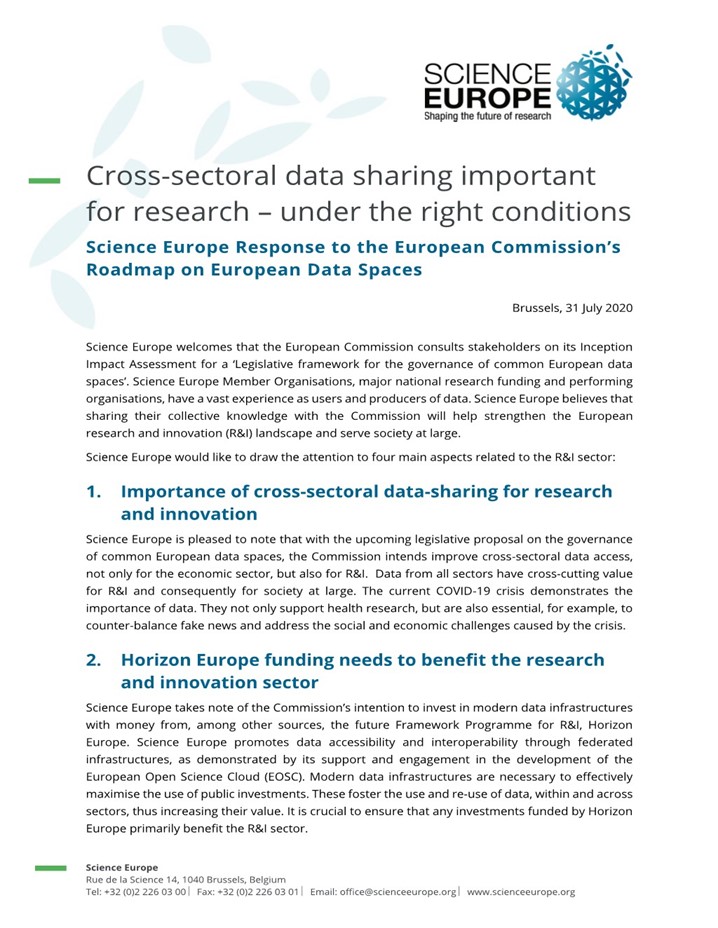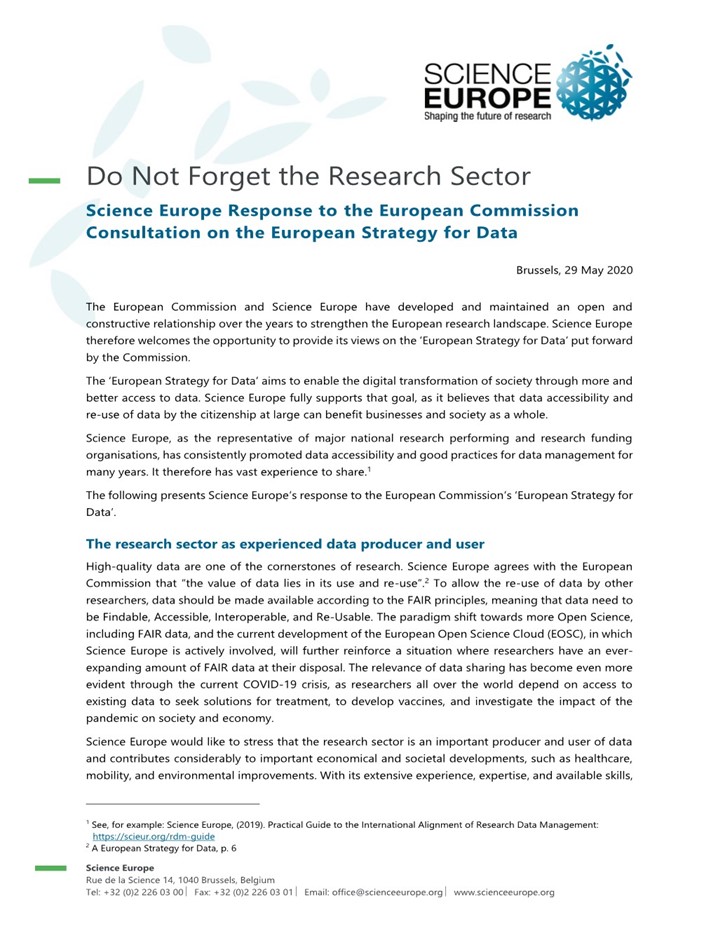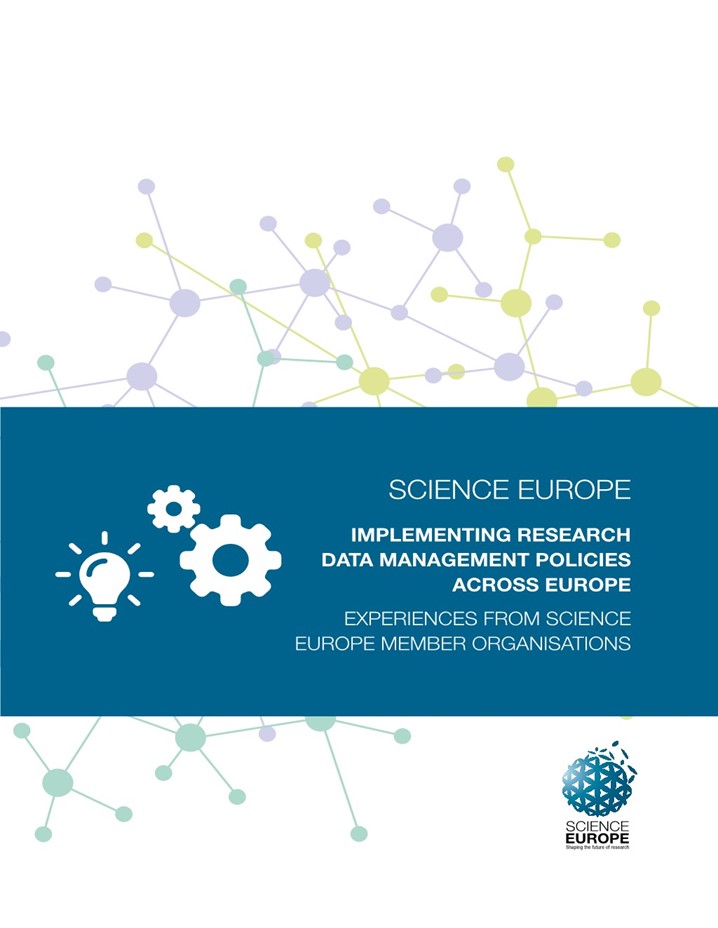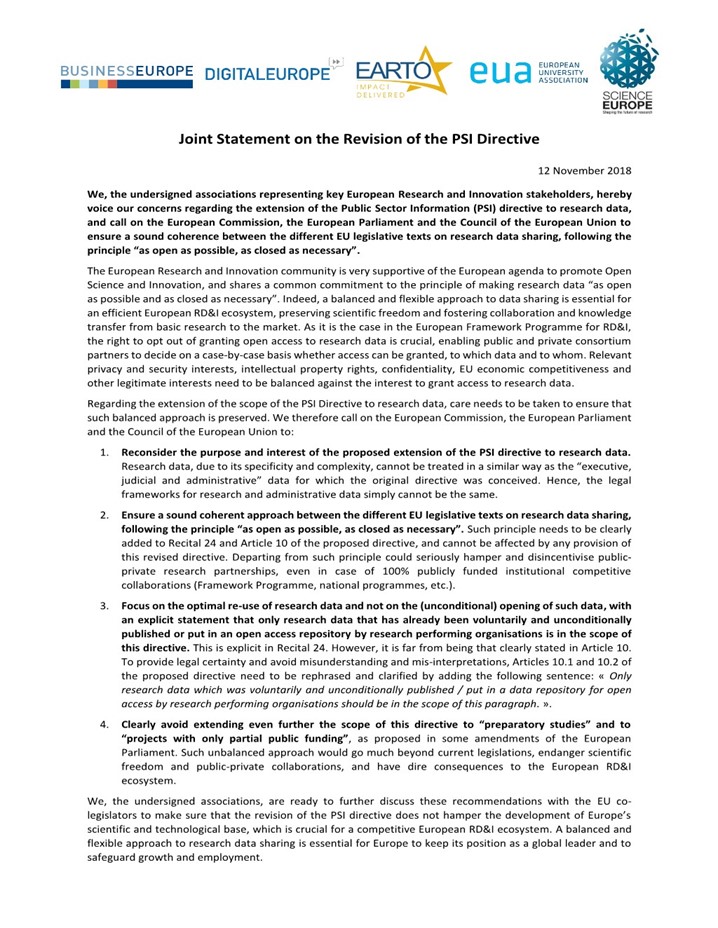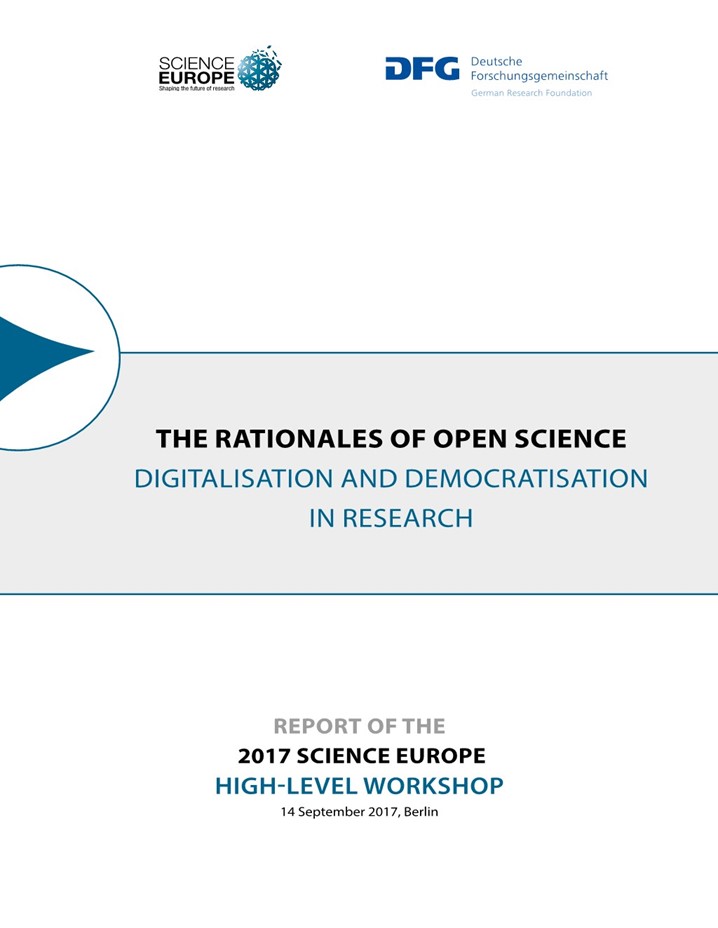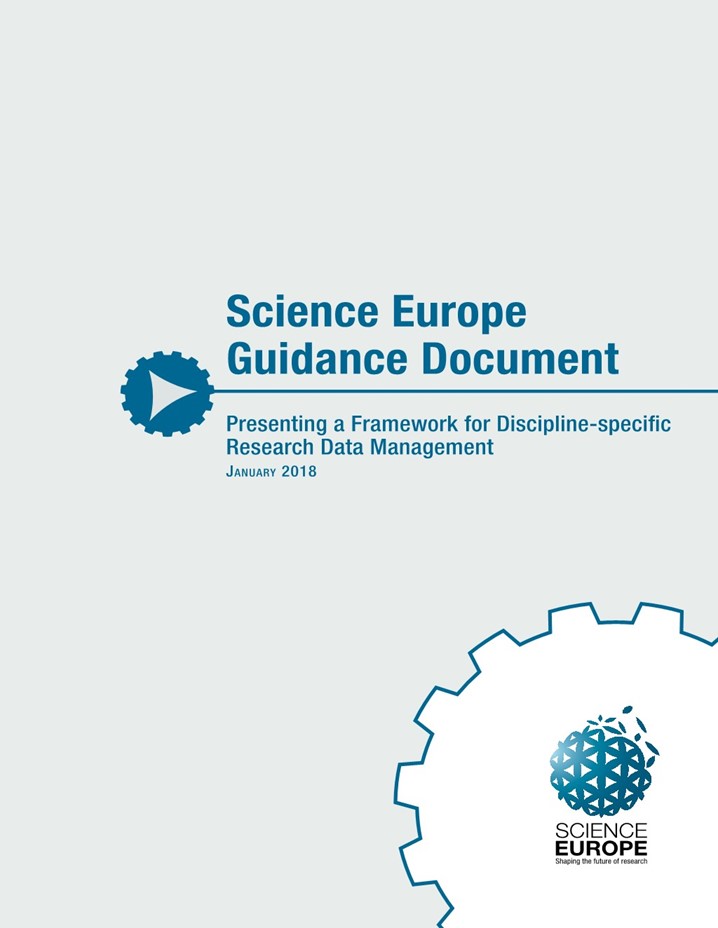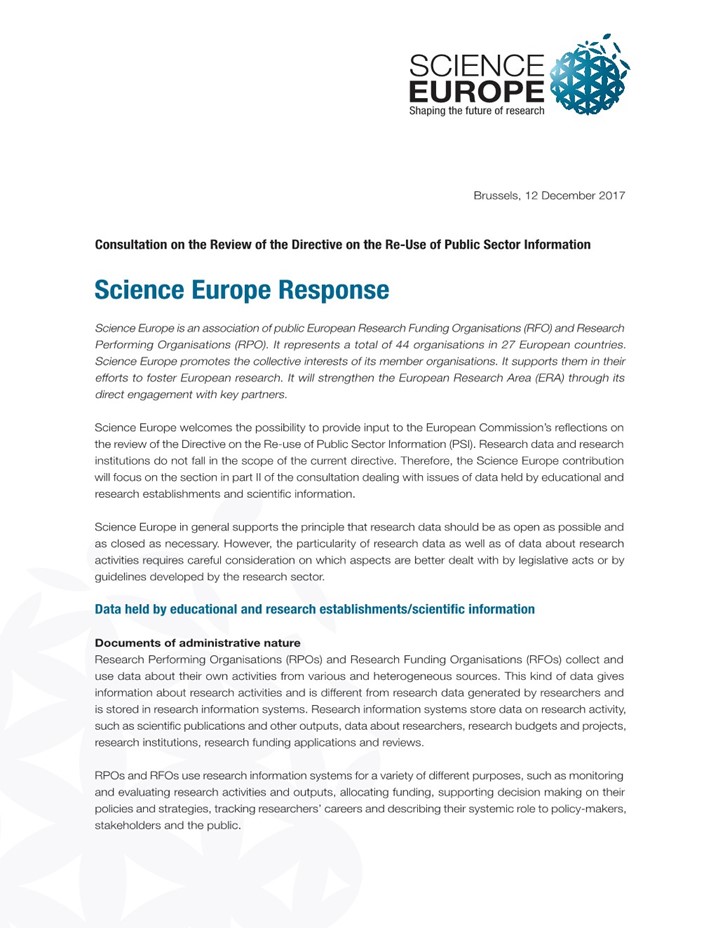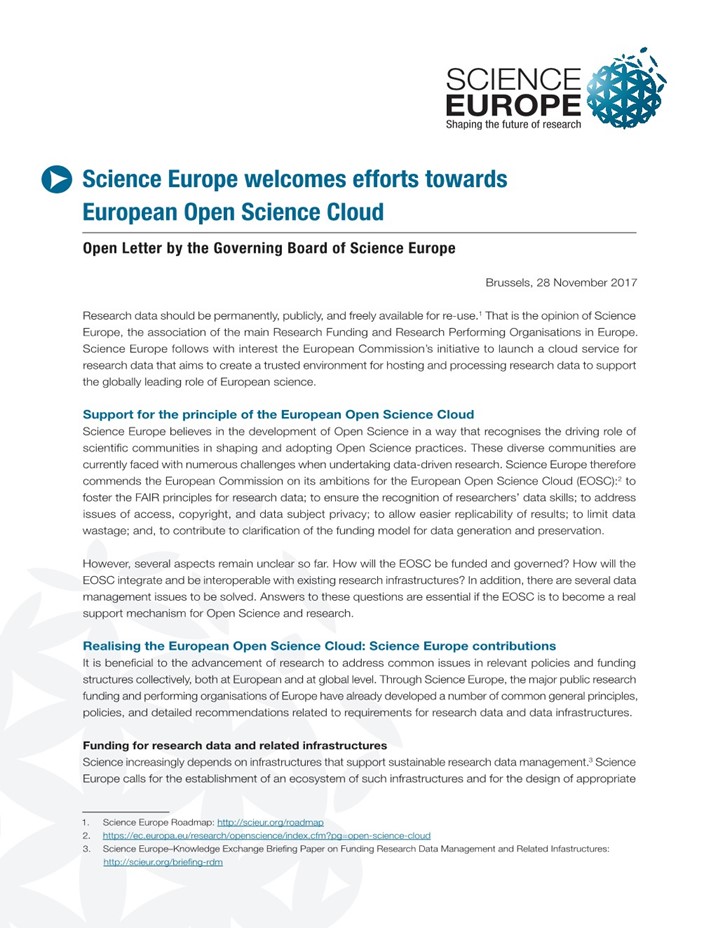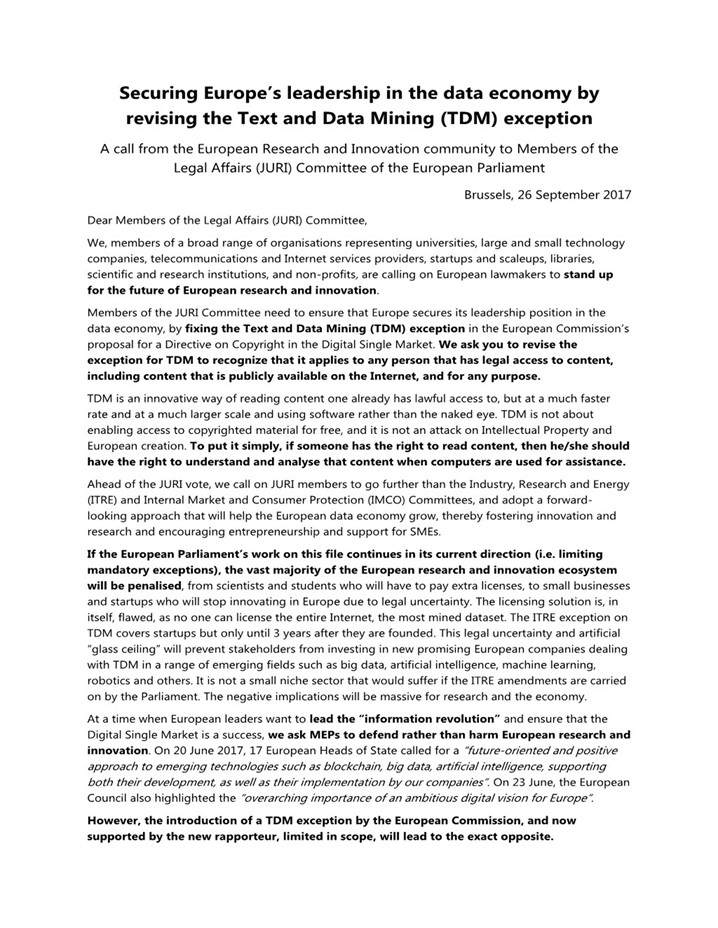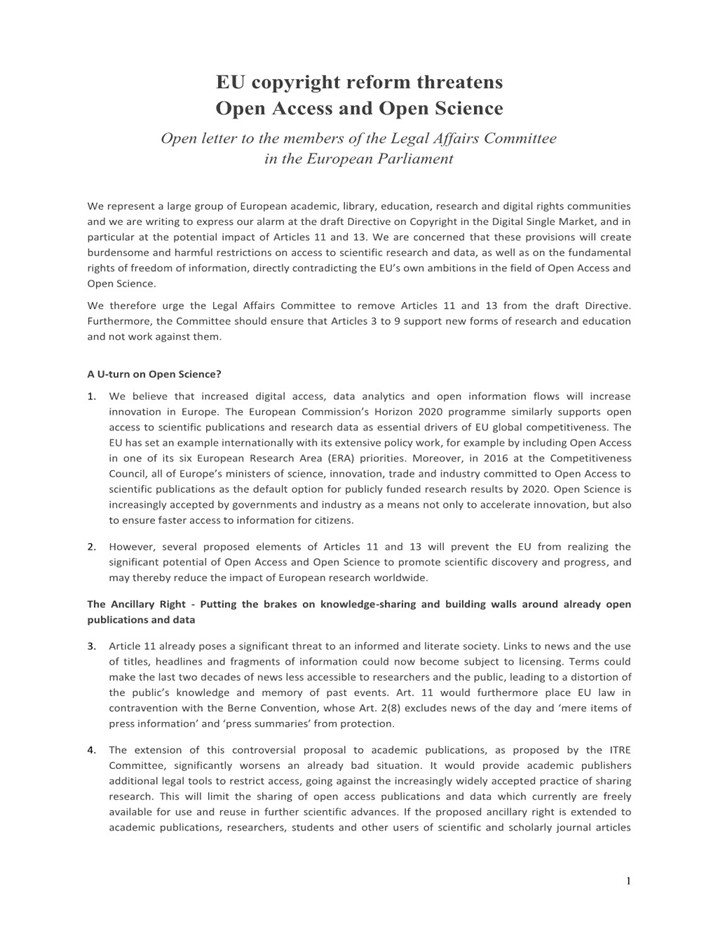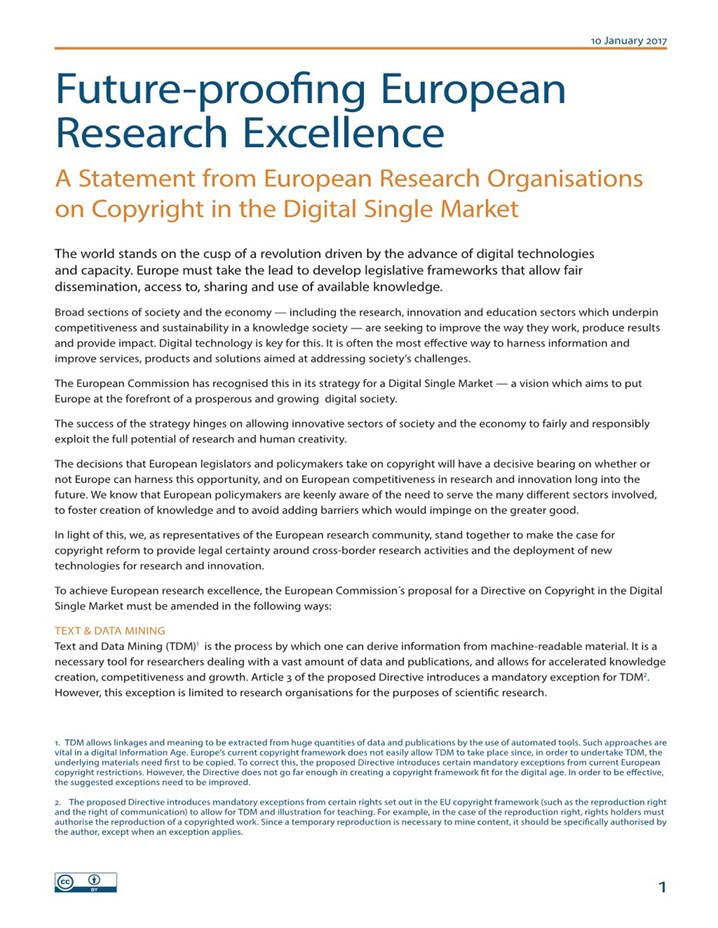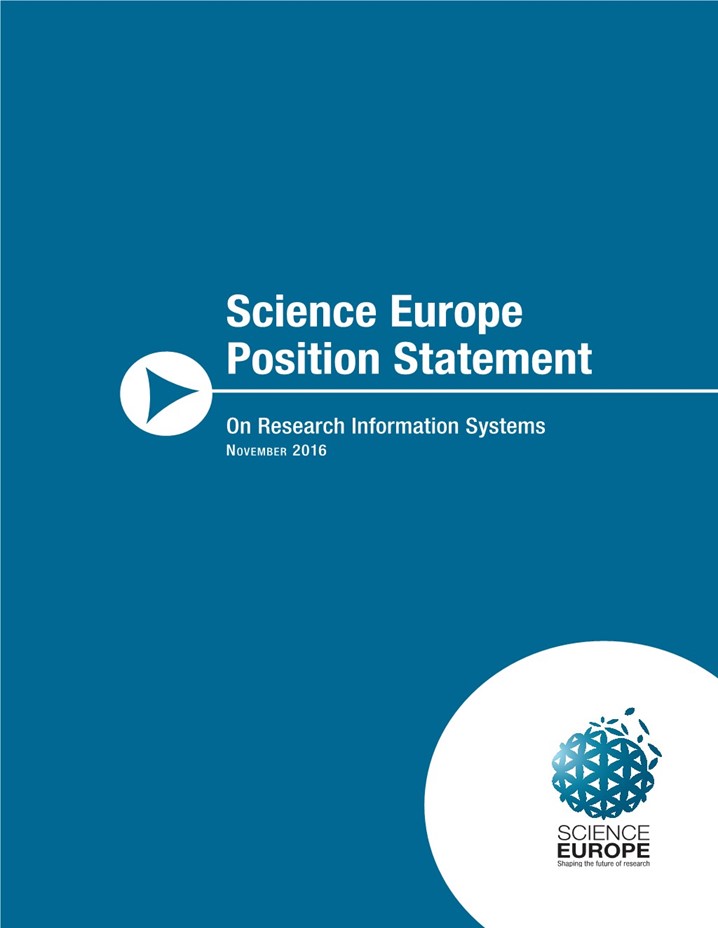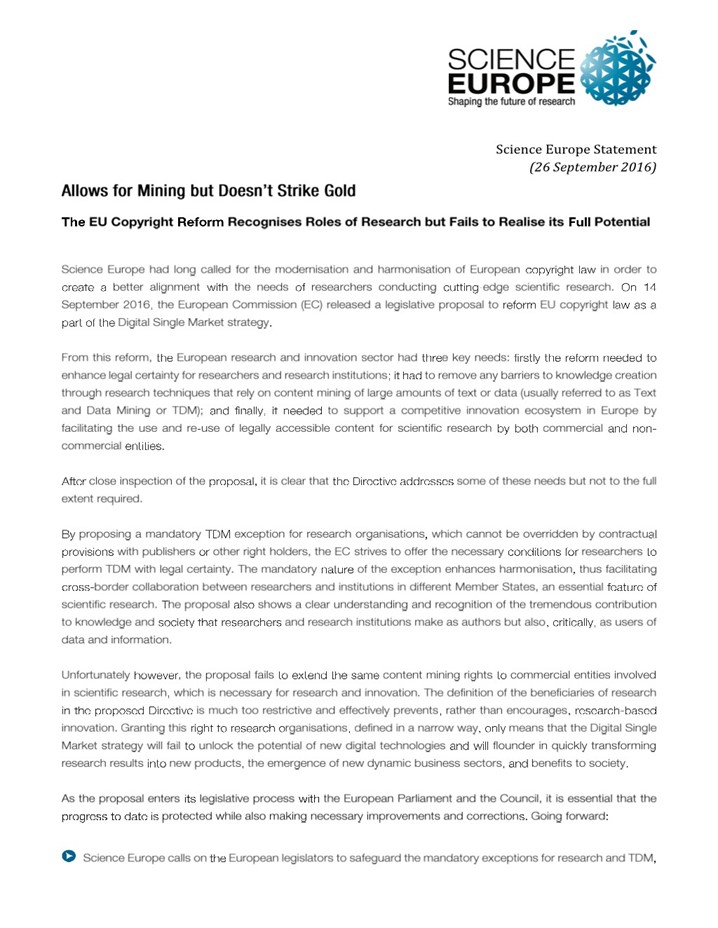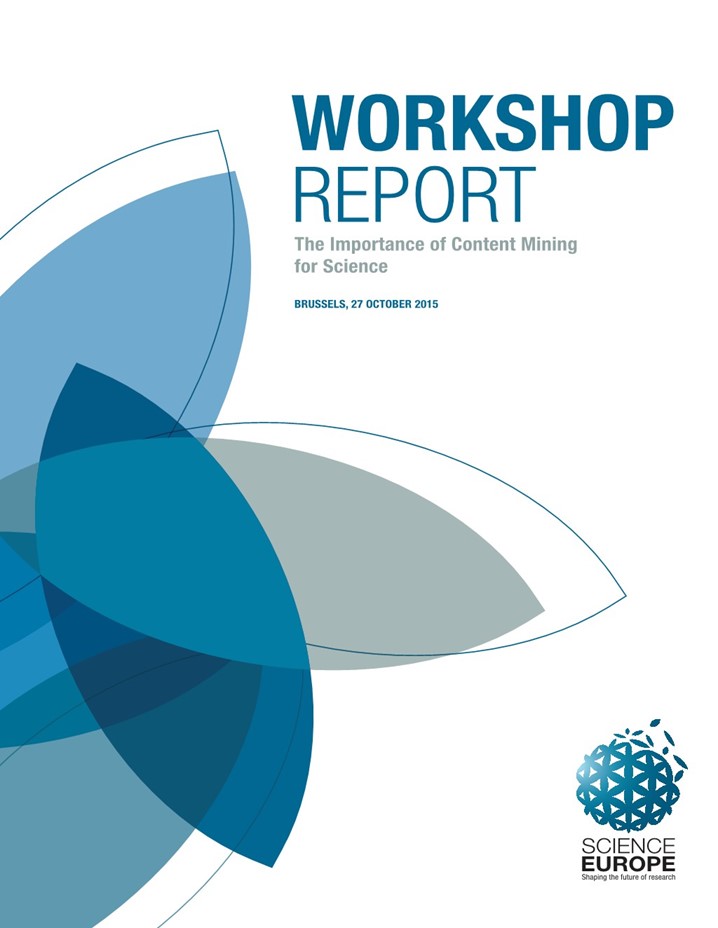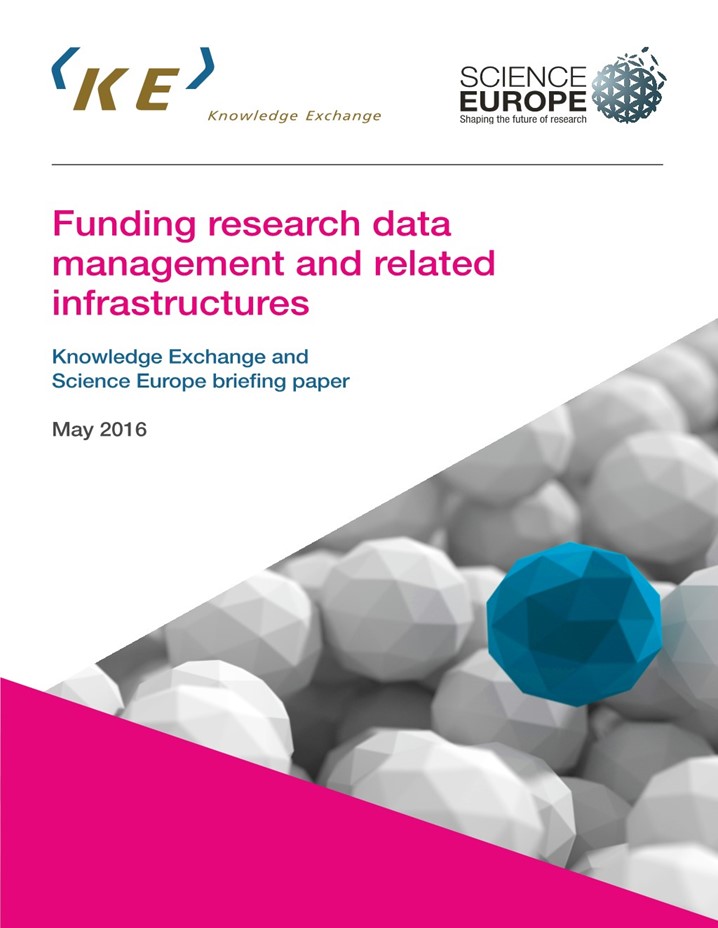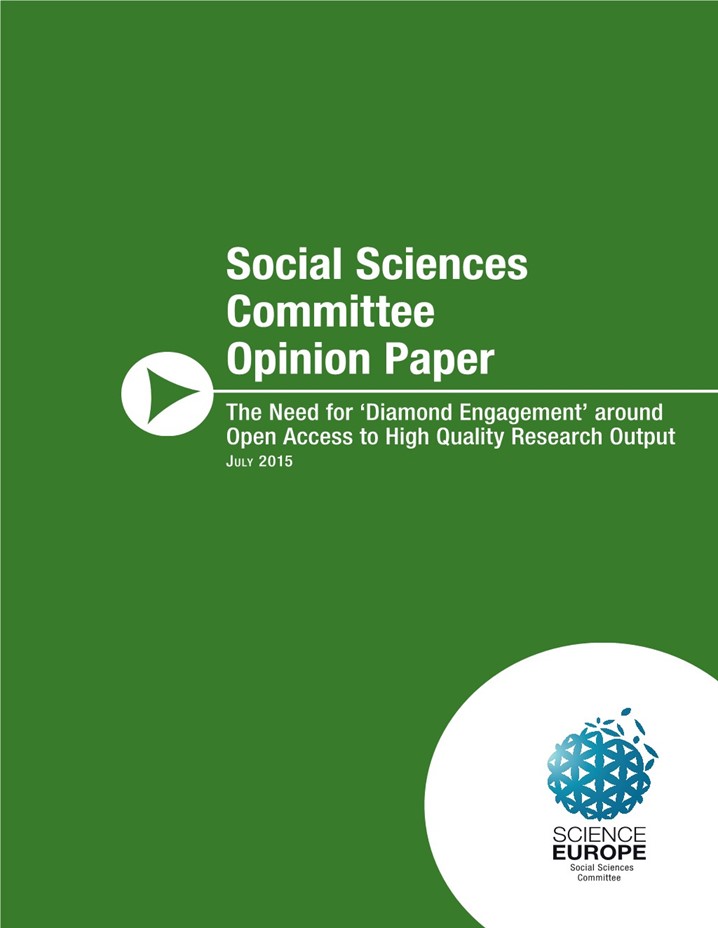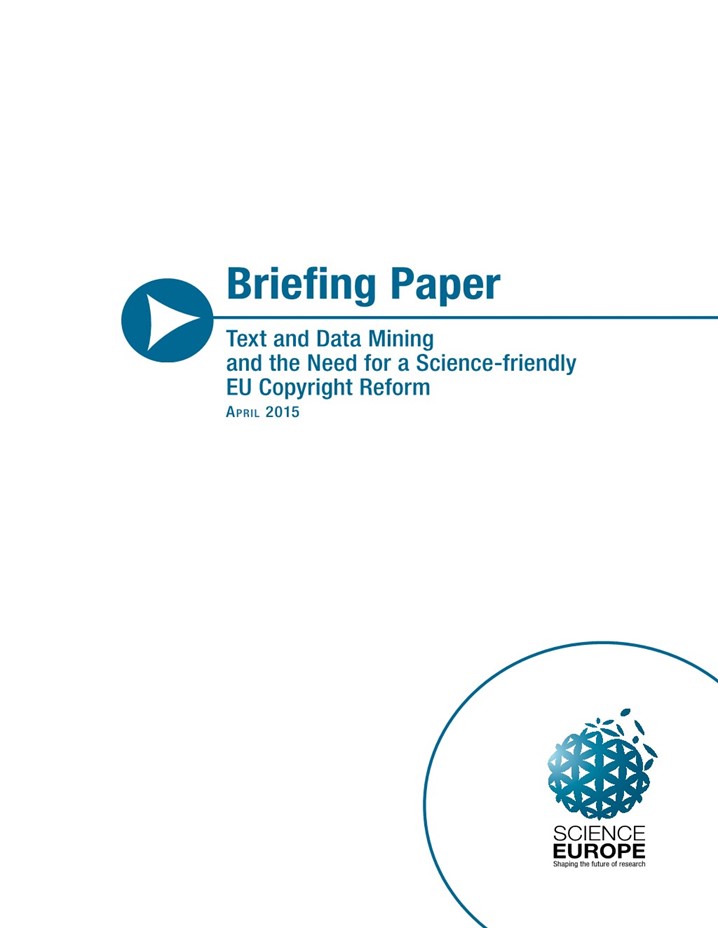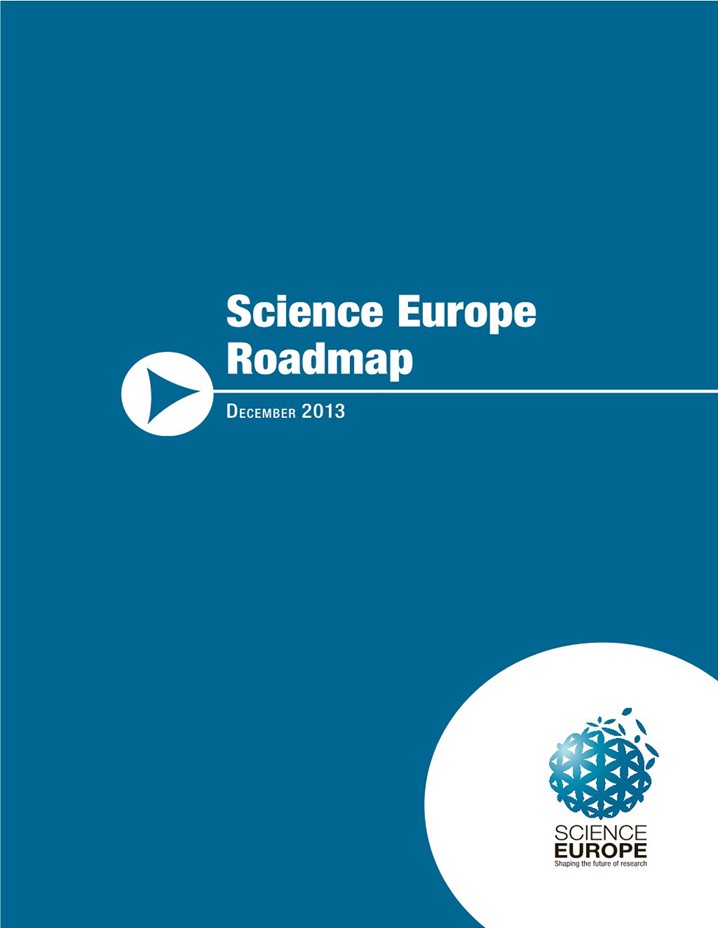Member-only content is available on this page. Please log in to view this content.

Our resources
Discover Science Europe’s comprehensive library of resources, including the most recent publications, briefings, and position statements.
43 resource(s) found
Response to the European Commission Roadmap on European Data Spaces
In its response to the European Commission Roadmap for an upcoming legislative proposal on the governance of common European data spaces, Science Europe reinforces the need to consider sectoral policies to ensure coherence.
Response to the European Commission Consultation on the European Strategy for Data
Science Europe calls on the European Commission to take into account the important role of the research sector as producer and user of data. The longstanding experience of the research sector should feed into the development of an overarching EU data strategy that promotes data access across sectors.
In its response to the EC consultation on the European Strategy for Data, Science Europe also underlines the need to consider sectoral policies to ensure coherence between overarching and sectoral policies.
Implementing Research Data Management Policies Across Europe: Experiences from Science Europe Member Organisations
Does your organisation want to develop requirements for data management plans (DMPs) or update existing ones?
Take a look at our latest publication to find out how to do so in three steps.
Joint Statement on the Revision of the PSI Directive
In this joint statement research and Innovation stakeholders call on the EU institutions to seek a balanced approach to data sharing in response to the European Commission’s proposal for a revision of the Directive on re-use of public sector information (PSI Directive). While the partners are supportive of the European agenda to promote Open Science and innovation, and share a common commitment to the principle of making research data ‘as open as possible and as closed as necessary’, there is a need to focus on the optimal re-use of research data and not on the (unconditional) opening of such data.
The Rationales of Open Science: Digitalisation and Democratisation in Research
How can citizens best be involved in the scientific process, and how ‘Open’ can we make science? How do we ensure that the highest standards in scientific research are maintained in such a system? This report provides an overview of the main discussions at the 2017 Science Europe High-level Workshop hosted in Berlin by the German Research Foundation (DFG).
Guidance Document Presenting a Framework for Discipline-specific Research Data Management
Research organisations and funders increasingly ask researchers to create Data Management Plans for their work and proposals. A lack of standardisation means that these can be time-consuming to create and difficult to compare and evaluate. Science Europe presents a framework for the creation of domain-specific protocols that can be used as standardised templates, reducing the administrative burden on both researchers, research organisations, and funders.
Response to the Consultation on the Review of the Directive on the Re-Use of Public Sector Information
Science Europe supports the principle that research data should be “as open as possible and as closed as necessary.” However, the particularity of research data as well as of data about research activities requires careful consideration on which aspects are better dealt with by legislative acts or by guidelines developed by the research sector.
Science Europe Welcomes Efforts Towards European Open Science Cloud
Science Europe welcomes the efforts made towards the European Open Science Cloud (EOSC). In this open letter, the Governing Board of Science Europe reinforces its view that research data should be permanently, publicly, and freely available for re-use. The proposed EOSC aims to further this goal but a number of important questions still remain.
Securing Europe’s Leadership in the Data Economy by Revising the TDM Exception
This open letter, signed by the European Research and Innovation community, calls on Members of the European Parliament and the Council to secure Europe’s leadership in the data economy by revising the Text and Data Mining (TDM) exception in the draft of the Directive on Copyright in the Digital Single Market. It calls for the TDM exception to apply to any person that has legal access to the content to help the European data economy grow, foster innovation, and encourage entrepreneurship.
EU Copyright Reform Threatens Open Access and Open Science
This open letter issued by the international research community calls on Members of the European Parliament to halt the adoption of harmful provisions found in the current draft of the Directive on Copyright in the Digital Single Market, which could threaten Open Access and Open Science.
Joint Statement on Future-proofing European Research Excellence
LIBER Europe, CESAER, EUA, LERU, and Science Europe — who together represent hundreds of universities, libraries, and research funding and performing organisations — call on Members of the European Parliament to modify the current EU copyright reform proposal. Amendments in five main areas of the proposal are critical if Europe wants to be at the forefront of a prosperous and growing digital society. Europe must take the lead to develop legislative frameworks that allow fair dissemination, access to, sharing and use of available knowledge.
Position Statement on Research Information Systems
Science Europe is working to enhance the interoperability of research information systems. This publication sets out common principles to guide their development.
Allows for Mining but Doesn't Strike Gold: Science Europe Copyright Statement
The recent legislative proposal from the European Commission to reform EU copyright law addresses some needs, but not to the full extent required. Science Europe calls for research and data mining exceptions to ensure that copyright legislation is friendly to research and innovation.
The Importance of Content Mining for Science
Text and data mining (TDM) is hugely important for science as it can facilitate better research and the free flow of knowledge across borders. This report urges policy-makers to update the legal framework in the context of the upcoming EU copyright reform in order to allow TDM for commercial and non-commercial means, and also to clarify the legal position surrounding it.
Briefing Paper on Funding Research Data Management and Related Infrastructures
This joint briefing paper with Knowledge Exchange informs the discussion on the funding of Research Data Management (RDM) and related infrastructures in Europe, helps raise awareness of the current challenges, and communicates opportunities for co-ordinated action to relevant stakeholders. The paper highlights that the funding of Research Data Infrastructures, enabling RDM, comes from a great variety of sources and institutions that have different responsibilities and that operate at local, national, and international levels.
Opinion Paper on the Need for ‘Diamond Engagement’ around Open Access to High Quality Research Output
This publication by Science Europe’s Scientific Committee for the Social Sciences addresses two audiences: scientists, especially those who have been traditionally more resistant to the OA approach, and policy makers. In it, the Scientific Committee for Social Sciences proposes a ‘Diamond Engagement’ concept with the three key principles: partnership; standardisation and interoperability; and enabling structures.
Briefing Paper on Text and Data Mining and the Need for a Science-friendly EU Copyright Reform
Text and Data Mining (TDM) helps the analysis and extraction of new insights and knowledge from vast amount of digitally-available content. It offers great potential for research, but also for the economy and society as a whole since it enables innovation. This paper gives an overview of some of the legal hurdles faced by researchers using TDM practices, flags possible action lines for research organisations, and calls for a more science-friendly EU copyright law.
Science Europe Roadmap
The Roadmap, approved by the Science Europe General Assembly in November 2013, is Science Europe’s action plan to contribute to the elements of a successful research system. It acts as a framework for voluntary collective activity, providing a long-term strategy for the association. The ‘Priority Action Areas’ are those in which Science Europe members believe that there is a potential to achieve tangible and substantive progress, and where they can add real value by working together.

